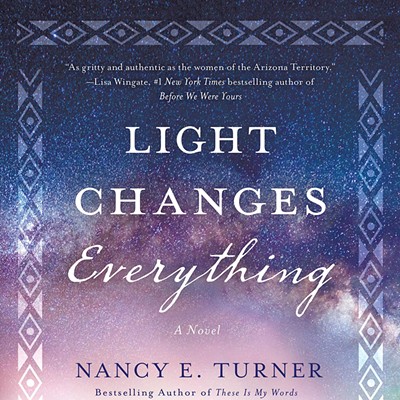In All Is Vanity, the engaging sophomore novel of erstwhile Oprah pick Christina Schwarz, Margaret Snyder has decided to enter the fray, hoping to confirm a greatness she felt she had been slated for since her gifted childhood. "I was precocious," she says of her youth. "I was enthusiastic, unswerving, creative. I had imagination. It took me twenty years to realize that none of this mattered."
Margaret decides to quit her teaching job and, in the footsteps of so many contemporary social climbers, write a novel. Surely, she assumes, someone with her preternatural graces, and with a professional background in all things Wharton, Woolf or Wilde to boot, should be able to bang out a defining chronicle of our times, instantly publishable and immensely sellable, and thereby move from "skulking in the fringes" of New York City urbanity to standing center stage.
Predictably, since Margaret has no actual ideas about what to write, her delusions of grandeur are stalled from the get-go under a five-month-long stranglehold of writer's block. "I realized that I, like a million other people," she admits at the nadir of her unproductiveness, "was merely smart."
Because Margaret has so much free time from pretending to write, she becomes actively attentive to the email correspondence of her childhood friend, Letty MacMillan. Letty, writing from Los Angeles, is experiencing a real kind of social transformation after her bookish, art historian husband is pulled away from academe into the glamorous swells of the city's fine art museum. Suddenly, the woman whose principal industry had been keeping alive four children on a minimal budget is house shopping in Beverly Hills with a realtor named Peri, looking for something "built before 1950 unless it had been designed by a well-known architect."
Since Letty's real life is exponentially more interesting than her aimless scraps of fiction, Margaret decides that a little appropriation couldn't hurt, if only to rouse the Muse from slumber. But soon, as Letty has helped get her family into massive debt, Margaret is actually egging her on for the sake of the story, which she says in retrospect thrilled her with its brilliant parallels to Madame Bovary, without troubling her at all with the details Emma Bovary's particular fate.
All Is Vanity is a novel of ideas and commentary and, as a plot based around writer's block and emails might suggest, not of action. Furthermore, as the biblical decisiveness of the title portends, there is nothing very subtle or surprising about the message; most of the lessons you'll take away are clear within 10 pages. Yet Schwarz writes such a spry, pithy prose that the book never becomes ponderous or preachy. Both Margaret and Letty's narratives are humorous and self-deprecating, effective counterpoise to the bleakness and betrayal the friends sink into. Even as they are magnetized to that world of catered and publicized elitism, they can also see its absurdity. Many of the pleasures in the book are in the voyeuristic glance we get at the lifestyles of the uppity: the gardeners, private tutors, SUVs, club chairs, wet bars, charity galas, and brisk, oblivious condescension that serve as their necessary accoutrements, of which Letty must try to incorporate into her home and family.
Speaking about her own intentions, Margaret rhetorically asks, "How many people believe they have a novel fully formed in the backs of their brains ... and are convinced that if only they could manage to tear themselves away from much more important work, they would just 'write it up?' I would say one in two." This may be an exaggeration, but such an attitude is certainly complicit with much of what is most ugly in art and perhaps culture in general. Novels like Margaret's are founded on the basic insincerity that completion and reward are more important than the work itself. What makes Letty's missives so enjoyable (and ripe for plagiarism) are just the qualities that Margaret lacks: humility, sensitivity and self-consciousness.
The writing in All Is Vanity reflects an understanding of this difference. Underneath its pillory against modern idol worshipping, Schwarz carefully limns the tale of a friendship destroyed by ambition. The characters are guilty of tremendous folly, but they are still drawn with care and compassion, and it is this kind of essential empathy that makes writing, in fact, no vain thing at all.








